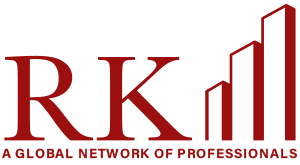Business Plan for A Logistics Company
Creating a business plan for a logistics company is essential for the company’s success and growth. We specialize in helping entrepreneurs and logistics firms develop strong business plans. Our guide will take you through each step, making sure your plan is detailed and practical.
This article explains the importance of business planning in logistics. It provides easy steps for creating a logistics business plan. This helps you start planning .
What is a Business Plan?
A business plan is very important for a logistics company. It helps guide your business’s growth and shows your goals and plans. This plan is key for getting funds, planning for expansion, and understanding the logistics market.
Business Plan for a Logistics Company
Executive Summary
Start your business plan with a summary. This part will outline your logistics business plan. Include your mission, the services you provide, and what makes your business stand out. This section is crucial as it gives the first impression of your business.
Give a brief overview of the following:
- Mission: Define the core purpose and goal of your logistics company.
- Services: List the types of logistics services you offer.
- Unique Selling Points: What sets your company apart from competitors.
- Business Model: Outline how your company will make money and sustain itself.
Company Overview
In the company overview, introduce the specifics of your logistics business. Are you focusing on procurement logistics, production logistics, sales logistics, or reverse logistics? Detail your business history, legal structure, and milestones. This section sets the stage for understanding your business’s foundation and aims.
- Business History: Outline the company’s history and evolution.
- Legal Structure: Describe the legal formation of your business (e.g., LLC, corporation).
- Milestones: Highlight key achievements and milestones.
Industry Analysis
This section demonstrates your knowledge of the industry and informs you the latest trends and industry insights.
- Industry Size & Growth: Share data on the current size and future growth of the industry.
- Key Competitors: Identify major players in the logistics sector.
- Market Trends: Talk about current trends and future predictions.
- Opportunities & Challenges: Analyze potential opportunities and challenges in the industry.
Customer Analysis
Knowing your customers is crucial. Break down who they are into different groups. Look at their company history, revenue and work ethics.
- Customer Needs: Identify the specific needs of different customer groups.
- Service Suitability: Explain how your services meet these needs.
- Customer Habits: Discuss the purchasing and logistics habits of your customers.
Competitive Analysis
Identify and analyze both direct and indirect competitors. Understand their strengths, weaknesses, and market positioning. This will help you to identify your competitive edge and how to outperform them.
- Direct Competitors: List and analyze direct competition.
- Indirect Competitors: Identify competitors offering alternative solutions.
- SOWT Analysis: Check the strengths and weaknesses of these competitors.
Marketing Plan
Your marketing plan should cover four key areas: Services and Promotion. Describe your delivery services. Mention where your business is. Explain how you’ll get and keep customers.
- Product Strategy: Explain the logistics services you provide.
- Place/Distribution: Specify where and how your services will be available.
- Promotional Activities: Describe your marketing and promotional tactics.
Operations Plan
Outline your day-to-day operations and long-term goals. This should include your operational processes, milestones, and how you plan to achieve them.
- Operational Processes: Detail daily logistics and operational processes.
- Milestones: Define specific short-term and long-term operational goals.
- Achievement Strategies: Describe how you’ll reach these milestones.
- Logistics Technology: Talk about any technology or systems supporting operations.
Management Team
Emphasize the strengths of your management team. Spotlight their experiences and skills, especially those essential for running a successful logistics company. If there are gaps, consider creating an advisory board with the right expertise.
- Team Experience: Showcase the experience and qualifications of team members.
- Relevant Skills: Emphasize skills in logistics and business management.
- Leadership Structure: Clarify the organizational structure and leadership roles.
- Advisory Board: If applicable, introduce members of the advisory board.
Financial Plan
Need help with your logistics plan? We provide expert advice in planning, finance, and market analysis for logistics. We’re here to help you realize your logistics goals.
- Income Statements: Share projections for income over the next few years.
- Balance Sheets: Include forecasts for the balance sheets.
- Cash Flow Statements: Provide detailed projections for cash flow.
- Funding Requirements: Specify the needed capital and its intended uses.
Appendix
Include supporting documents with your business plan. These can be leases, details about intellectual property, or comprehensive financial projections.
- Legal Documents: Include copies of incorporation and permits.
- Intellectual Property: Provide information on patents, trademarks, or copyrights.
- Financial Projections: Include more detailed financial forecasts.
- Additional Data: Attach any other relevant documents supporting the business plan.
Contact RK Group for Expert Services
Contact us for help with your logistics business plan. Or you can get our business plan writing services. RK Group offers expert advice in business planning, financial strategies, and market analysis for the logistics industry. We’re here to guide you.
Looking for the Business Plan Writing Services?
